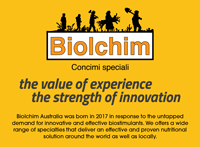A Tasmanian Institute of Agriculture (TIA) research project investigating the impact humidity has on wine quality has received funding from a trust that supports sustainable agriculture.
In Tasmania, climate data is used for assessing the suitability of new viticulture sites, but the impact that additional climate factors, including humidity, has on wine quality is not factored in.
TIA Research Fellow Dr Tory Clarke will lead a one-year project to generate data showing the impact humidity has on Pinot noir wine grapes in Tasmania. Tasmanian wine producer Dr Andrew Pirie AM shared the idea for the project to ensure Tasmanian wine remains a premium product. Dr Pirie’s research with TIA’s Professor Kathy Evans confirmed the value of pursuing the idea.
“This information will assist in defining high performing sites for Pinot noir production in Tasmania and help understand how site-specific climate conditions impact on terroir,” Dr Clarke said.
“It’s an exciting opportunity to get some pilot data on whether we can actually link some of these really site-specific environmental conditions with measures of wine quality.
“We’re going to be looking for the flavour and aroma compounds that really give wine its distinctive value.”
“The goal of the project is to help wine producers make informed choices when putting in a new vineyard. Having an awareness of conditions influencing wine quality at that site should support decisions about grape variety and how to manage the vines.”
Dr Clarke hopes the outcome of her project will ensure that sustainable farming practises are encouraged.
Dr Clarke’s project is one of three TIA projects that have received a total of $28,000 in funding from the JM Roberts Charitable Trust.
Dr Megan Verdon will lead a research project to better understand the issue of calf mortalities. In collaboration with the Perrin Institute and the University of Western Australia Dr Verdon will determine whether reduced oxygen is the cause of reduced calf outcomes during a difficult birth and will explore potential treatments.
Dr Apeh Omede will lead a research project focussing on the development of a feed additive for reducing methane emissions in livestock animals. The project has a long-term objective of contributing to sustainable livestock production in Tasmania.
TIA Director, Professor Mike Rose, said the research could have significant benefits for the Tasmanian agricultural industry as it looks to sustainably increase productivity.
“The funding will enable important research with the potential to create significant impact and boost the productivity of Tasmania’s agriculture and food sectors with an eye on the future,” Professor Rose said.
“We remain focused on ensuring that our research is responsive to industry needs, current challenges and future opportunities.”
The JM Roberts Charitable Trust was established by the late John Roberts and provides seed funding for research in sustainable agriculture at TIA along with broader University of Tasmania scholarship support.
“John Roberts was a man before his time and certainly took sustainability to another level in establishing the trust during his lifetime. His vision was clear: If we looked after our land, we would be able to produce healthy food and therefore healthy people – it is that simple,” said JM Roberts Trust Trustee Steven Hernyk.
Are you a Daily Wine News subscriber? If not, click here to join our mailing list. It’s free!





















